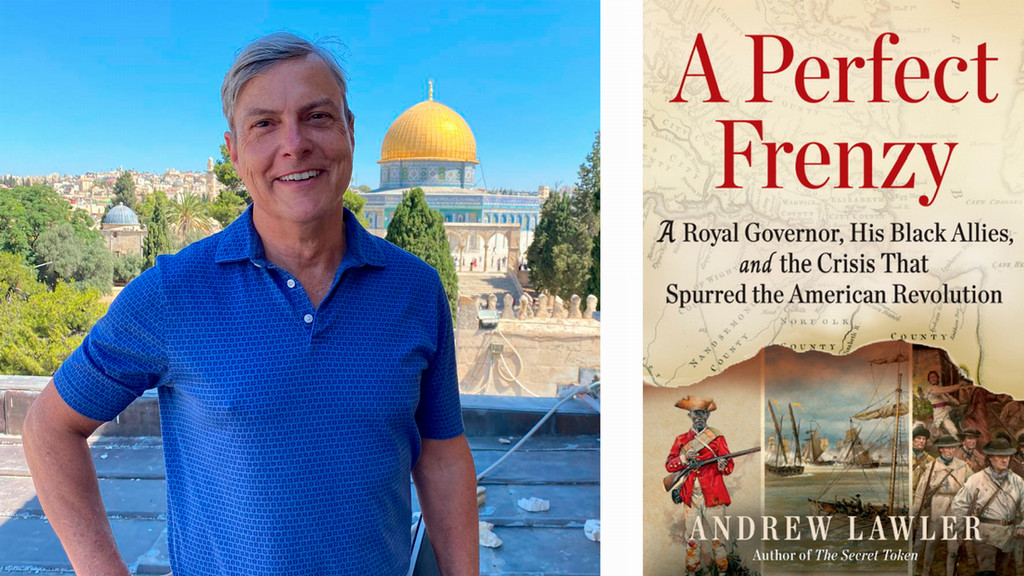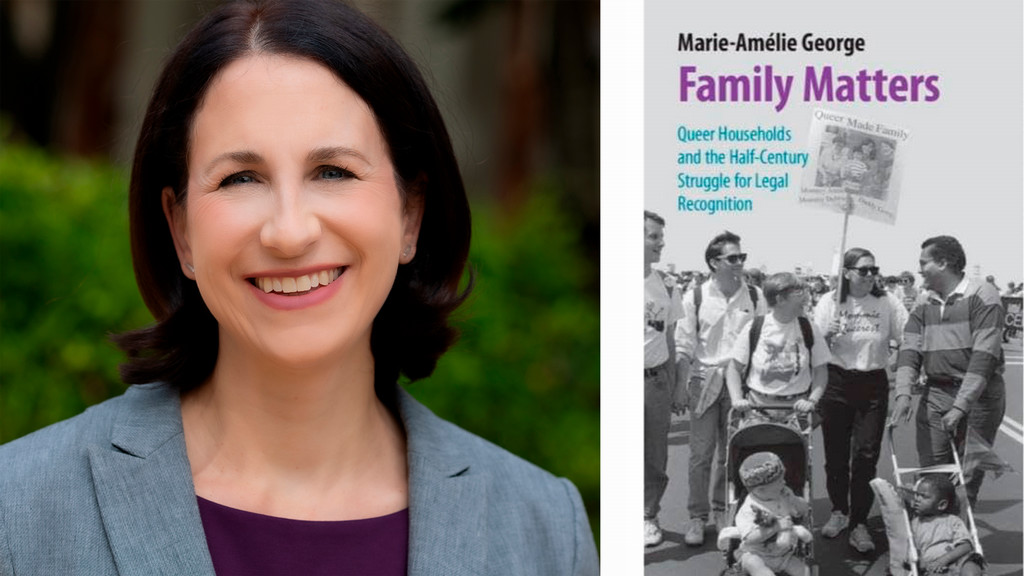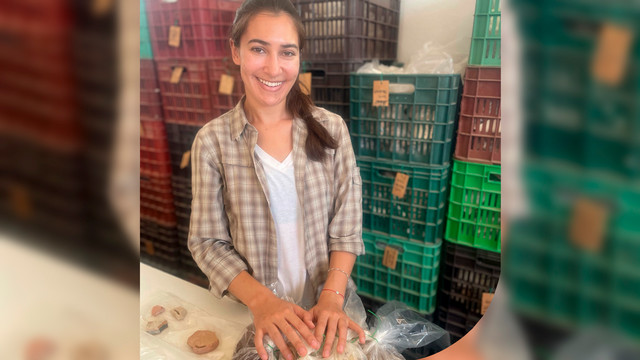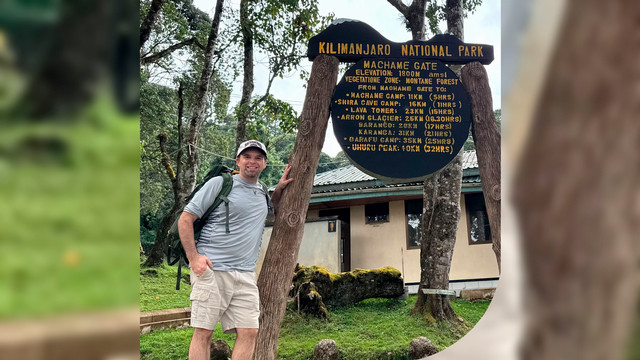James J. Broomall, professor of history and William Binford Vest Chair in History, is serving as an academic advisor of and reviewer for the exhibition and book, The Soldier's Gaze: Picturing the Civil War. The Virginia Museum of History and Culture will premiere the exhibition in 2027, and Rizzoli Press will publish the book/exhibition catalog.
Why does studying LGBT history matter?
In an era of "don't say gay" laws, Dr. Pippa Holloway, chair of the University of Richmond's Department of History, believes in the relevance and importance of teaching LGBT history to students for what they learn about courts, the Constitution, civil rights, and America as a whole.
Learn more about Spring 2026 course offerings.

Richmond Yiddish Week
What Is Yiddishkayt? An Introduction to Yiddish Language and Culture
Friday, January 16th | 12-1:30pm | Humanities CommonsJoin us for a nosh-and-learn with Richmond-based writer and translator Danny Kraft as part of the city-wide Richmond Yiddish Week. Together, we’ll explore the origins of the Yiddish language and discover how Yiddish culture became one of the 20th century’s most dynamic diasporic traditions. We’ll also delve into the richness of Yiddish art and culture, from its historical roots to its contemporary expressions, as we consider the enduring power and meaning of Yiddish in our multicultural world.
No knowledge of Yiddish is necessary, and attendees of all backgrounds are welcome!
Sponsored by the Department of History, Jewish Studies, and the Humanities Center.

2025-2026 Phi Alpha Theta Lecture
"The Forgotten Quest for Freedom"
Monday, November 17th | 5:30-6:30pm | Brown Alley Room
In 1775, hundreds and possibly thousands of enslaved Americans fled their patriot owners for British lines in a risky gamble for freedom. Impressed by their bravery, Lord Dunmore--the last royal governor of Virginia--emancipated those in bondage in November. He formed the first Black unit in the British empire and sent them into battle against the patriots. What were the impacts of these events on the unfolding war between Britain and the colonies, and on the subsequent conflict over slavery in the young United States? Come hear a lecture that challenges many of our conventional assumptions about the founding of our nation.
This lecture will be given by Andrew Lawler, a journalist and author who has written about history, science, religion, and politics from dozens of countries. He is author of four books, and his byline has appeared in The New York Times, The Washington Post, National Geographic, Smithsonian, and many other publications. Andrew is a contributing writer for Science and contributing editor for Archaeology, as well as a National Geographic Explorer and a Pulitzer Center grantee. His work has won a number of journalism awards, and appeared several times in The Best of Science and Nature Writing.
Andrew’s newest book, A Perfect Frenzy: A Royal Governor, His Black Allies, and the Crisis That Spurred the American Revolution, will be available for purchase after the lecture.
2025-2026 Thomas S. Berry Lecture
"For Love and Money: The Economic History of Marriage Equality"
Wednesday, Nov. 5th | 5:30-6:30pm | Brown Alley Room
In 2015, members of the LGBTQ+ community rejoiced when the Supreme Court ruled that the Constitution protected the right of same-sex couples to marry. Many of the celebrants on the court steps held signs that read "Love Is Love," which reflected the movement’s argument that marriage rights were meant to respect and support the emotional bonds between devoted partners. But although the campaign for marriage equality was about love, it was also about money. Same-sex couples’ inability to marry imposed significant financial harms on queer households. This lecture highlights the overlooked fights for economic equality that predated the movement for marriage rights, revealing how these battles ultimately helped produce the Supreme Court’s historic decision recognizing same-sex marriage.
Faculty Highlights
James J. Broomall, professor of history and William Binford Vest Chair in History, was invited to serve on the American Civil War Museum’s Historian Advisory Council, a standing body that advises on initiatives and projects to ensure the museum remains a leading resource on the American Civil War and its legacies.
Michelle Kahn, associate professor of history, won the Berkshire Conference of Women Historians Book Prize for her book Foreign in Two Homelands: Racism, Return Migration, and Turkish-German History.
David Brandenberger, professor of history and global studies, published Stalin’s Usable Past, which analyzes Stalin’s role in rewriting Soviet history to emphasize a thousand-year legacy before the 1917 Revolution and reshape Soviet identity.
Upcoming Events
Contact Us
Mailing address:
History Department
Humanities Building
106 UR Drive
University of Richmond, VA 23173
Phone: (804) 287-6041
Fax: (804) 287-1992
Department Chair: Dr. Pippa Holloway
Academic Administrative Coordinator: Catherine Hash








